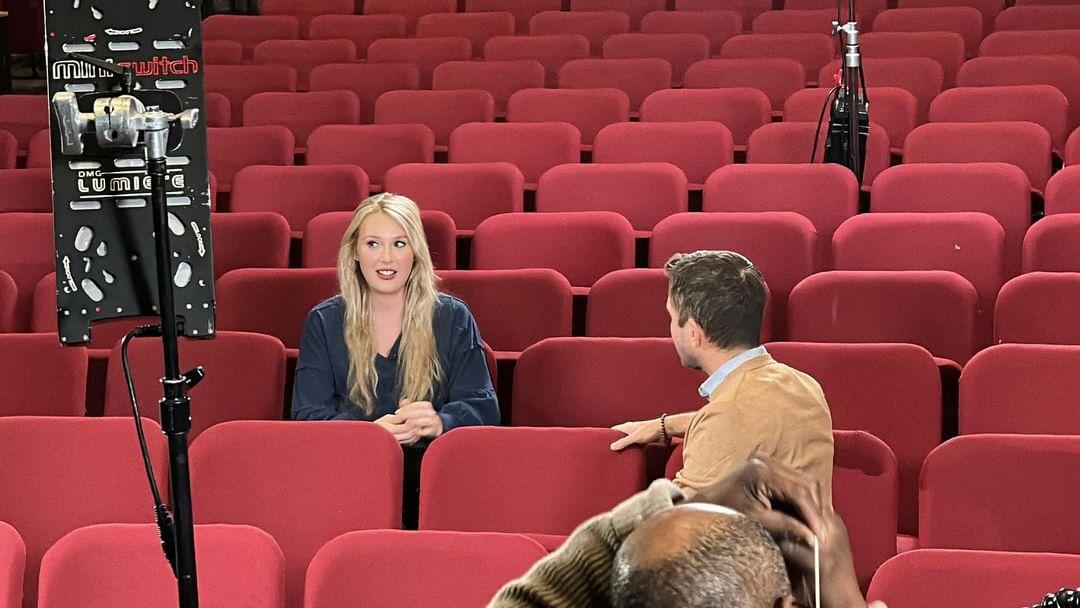Feelings of hopelessness rush through their heads. The taunting is like torture that is following them everywhere. The internal conflict presents a major problem, because they don’t want to be a “snitch” and ask an adult for help. It feels like there is no way to make the bullying go away, like there is no escape. This is how children feel when they are bullied.
In the past couple weeks, the media has been a buzz with stories about bullying and the sometimes drastic consequences. Five boys in the U.S. have committed suicide because of bullying in past few months alone. Many experts say bullying is becoming an epidemic, because it no longer occurs just in the halls and bus stops of schools, but a takes place on the Internet, on social networking sites like Facebook and MySpace, or on cell phones. This means that a teenager’s tormentors can strike at any time and can follow him wherever he goes.
“People were writing “you’re annoying,” “you’re ugly” and it hurt my feelings,” said junior Kaitlyn To, who was bullied on a website called Formspring, which gives people the option to post anonymous comments on someone’s profile. Because of this, the poster never has to deal with the consequences of what he says. Without any fear of retribution, people do not self-censor the way they do with everyday speech. This allows for extremely negative and hurtful comments to come out.
“I just see [bullying] online,” said junior Beth Hardbower. “Because people are afraid to do it in person.”
October is National Bully Prevention Month, an event put on by the Pacer Center, a foundation which strives to improve the quality of life for children with disabilities. The event used to be limited to a week, but this year was lengthened in order to raise greater awareness. Their International Bully Prevention Day is October 20 and they are hoping to get countries from all around the world to participate.
FCPS hosted an event on October 13 at the Dunn Loring Center called Bullying Prevention: Tips for Parents, in order to inform parents about bullying and give them an open forum for their questions. The organizers of the event hoped that it would increase awareness in order to decrease bullying. It was hosted by Dede Bailer, the FCPS coordinator of School Psychology Services. Bailer focused on the three types of bullying; direct, indirect and relational.
“The type [of bullying] we see in high school is relational and indirect,” said Bailer. Indirect bullying is anything from spreading rumors to cyberbullying. Relational bullying is intentional non-inclusion, which most often occurs in cafeterias and other unsupervised areas. In fact, most bullying today is not of a physical nature. “I see it more in school. I see name calling,” said sophomore Ayat Elhag.
A poll shared during the event stated that 66 percent of students said that they don’t report bullying because they don’t think teachers will do anything. Another six percent said that the bullying got worse after they told their teacher. “Teachers really do want to intervene. They don’t know how to do it,” said Bailer.
The bullying awareness night stressed that FCPS’s main strategy to combat bullying should be to continue educating teachers and students. “We’re training educators, providing them with a knowledge base,” said Bailer. “We’re teaching them the skills to effectively handle these situations.”
FCPS will also be compiling a manual on bullying to be used in the coming years. Results from a survey distributed to seniors and sophomores during the 2009-2010 school year will be presented to a board in the district soon. After reviewing the material, they will decide how to move forward with the issue.
Recently, major media outlets have dedicated news specials to bringing this topic to light. According to CNN, though 30 percent of children feel they have been bullied in some form or another, 60 percent of parents think that it is minor issue or not an issue at all.
One story that has garnered a multitude of media attention in the past couple of weeks is the story of Trevor Clementi. Clementi was a freshman at Rutgers University in New Jersey, who had his privacy violated when his roommate set up a hidden camera in his dorm room. The roommate filmed Clementi’s sexual encounter with another male and uploaded it to the Internet for the world to see. “I just felt that it was immoral and unethicial,” said junior Tae Kim.
After finding out, Clementi ended his life by jumping off the George Washington Bridge. The story has sparked outrage across the country, including in groups on Facebook that believe the students involved should be charged with more serious crimes than just invasion of privacy.
New research proves that gay and lesbian teenagers bear the brunt of bullying in today’s society. In fact, the five teenagers who committed suicide mostly recently were teased for their sexuality.
At AHS, the Gay/Straight Alliance has been working to stop intolerance of gay teens. The GSA’s goal is to educate people in order to garner more acceptance for the gay community. The club meets every other Monday of the month to discuss their efforts.
Projects to stop intolerance have also been all over the media. The “It Gets Better” campaign, led by some of the most prominent celebrities in the business, serves to tell gay youth that in time people will become more accepting. Ellen DeGeneres, Tim Gunn, Kim Kardashian and Ke$ha are among the many celebrities who have posted videos on the Internet for the campaign.
“Things will get easier, peoples’ minds will change,” said DeGeneres on her talk show. “And you should be alive to see it.”
FCPS reported that bullying decreases as children get older. This research is based on what children report and therefore does not include the cases of teens who choose to remain silent. “We’re seeing less reported bullying in high school,” said Bailer.
Even with the lower rates, Bailer said that they had one goal specifically for the students who are not targets or bullies. FCPS wants “to move the bystanders towards being defenders.”
‘It’s more than just the target, it’s more than just the bully, all of the bystanders are affected,” said Bailer.
To learn more about FCPS’s mission to combat bullying, go to http://www.fcps.edu/dss/ips/psychologists/overview-of-services.htm.
In the next part of this series, AHS students will share their personal stories about bullying and how it has affected them. The piece will also feature a survey about how much bullying is really at AHS.










